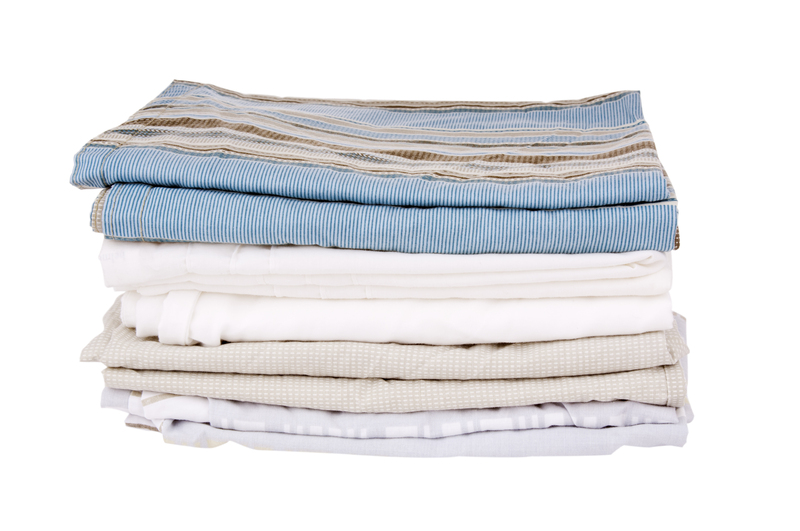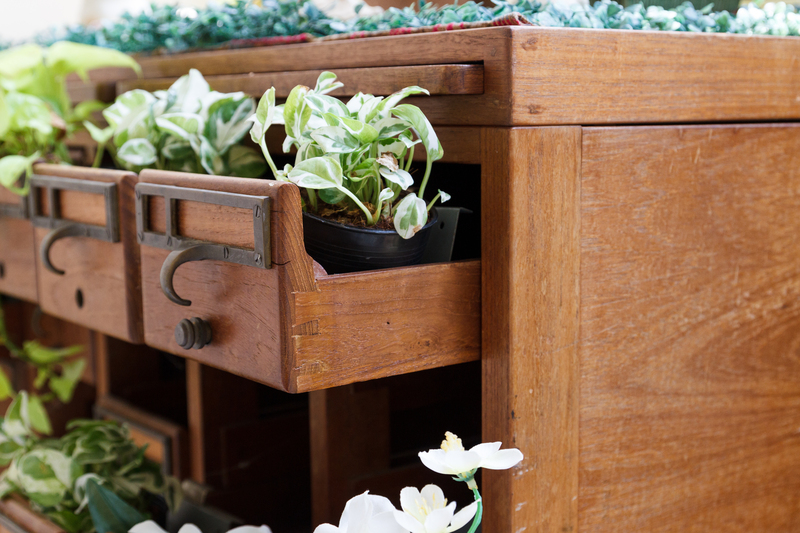Smart Ways to Dispose of Old Pots and Pans Sustainably
Are you wondering what to do with your old, used, or damaged cookware? Disposing of old pots and pans sustainably is an important step towards maintaining an eco-friendly lifestyle. Whether your cookware is stainless steel, aluminum, nonstick, or cast iron, there is a responsible way to ensure it doesn't end up in landfills. In this comprehensive guide, we'll cover the best eco-friendly methods to dispose of pots and pans, their environmental impacts, and the creative alternatives to give new life to your kitchen items.
Why Sustainable Cookware Disposal Matters
Every year, millions of tons of cookware are thrown away, most of which end up in landfills. Metal products like old pots and pans take decades to decompose, and non-stick coatings can release harmful substances into the environment.
- Conserves Natural Resources: Recycling metals reduces the need to mine raw materials.
- Reduces Landfill Waste: Sustainable disposal methods keep waste out of landfills.
- Prevents Pollution: Properly managing nonstick or coated cookware prevents environmental contamination.
- Encourages Creativity: Reusing or upcycling old kitchenware sparks creative solutions.

How to Identify the Best Disposal Method for Your Cookware
Before you choose a disposal method, take these steps:
- Examine the condition. Is the pan badly damaged or simply scratched?
- Determine the material. Is it stainless steel, cast iron, aluminum, copper, or nonstick?
- Check for local rules. Recycling centers and donation organizations have specific guidelines for different materials and coatings.
Key Materials Found in Old Pots and Pans
- Stainless steel
- Aluminum
- Copper
- Cast iron
- Nonstick coatings (e.g., Teflon)
- Ceramic coatings
Each type may require special handling, so identifying your cookware's material is crucial before disposal.
Eco-Friendly Ways to Dispose of Old Pots and Pans
1. Donate Usable Cookware
If your pots and pans are still in reasonably good condition, consider donating them. Many charitable organizations, thrift stores, shelters, and community kitchens gladly accept gently used cookware.
- Salvation Army
- Goodwill
- Local shelters
- Food pantries
- Non-profit thrift stores
Tip: Always call ahead to confirm donation policies, as some locations may not accept certain materials or nonstick coatings.
2. Recycle Old Cookware
Most pots and pans--especially those made from stainless steel, aluminum, copper, or cast iron--are recyclable. However, different rules may apply to cookware with plastic handles, glass lids, or nonstick coatings.
How to Recycle Old Pots and Pans:- Remove Non-Metal Parts: Detach rubber handles, lids, or plastic knobs if possible.
- Check Local Recycling Centers: Search online for "metal recycling near me" or contact your municipal recycling coordinator.
- Scrap Metal Facilities: Many scrap yards accept cookware. Some may even pay you for valuable metals like copper or aluminum.
- Curbside Recycling: Some municipalities allow cookware in their mixed metals bins, but always verify this first.
Note: Nonstick coatings (like Teflon) can make recycling challenging, so clarify with your local recycler if these are accepted or require special handling.
3. Upcycle and Repurpose Cookware
Giving new life to old pots and pans is fun, creative, and extremely eco-friendly. Here are some brilliant upcycling ideas:
- Planters and Garden Containers - Old pots make great homes for herbs or succulents.
- Birdbaths or Feeders - Turn a cast iron pan into a rustic birdbath.
- Storage Solutions - Use a clean saucepan to organize office supplies, craft tools, or hardware.
- Wall Art - Paint pans for unique wall decor in kitchens or patios.
- Cake Stands or Clocks - Glue a cake plate onto a skillet or attach clock hands to an old frying pan for a quirky timepiece.
Tip: Kids' crafts, art projects, and DIY home improvements are perfect ways to upcycle rather than send your unwanted cookware to the landfill!
4. Trade In or Recycle at the Store
Many cookware brands and home goods retailers now offer take-back programs or recycling events:
- Sur La Table - Sometimes accepts old cookware for recycling during special promotions.
- Bed Bath & Beyond - Offers trade-in discounts a few times a year.
- GreenPan - Accepts damaged cookware of any brand when buying new items.
These programs not only help you dispose of old pots and pans sustainably but may reward you with coupons or discounts.
5. Gift or Swap Your Cookware
If your cookware is still safe to use, gift it to a friend, neighbor, or college student. You might also:
- Host a kitchenware swap party with friends or family.
- Post your items for free on Facebook Marketplace, Nextdoor, or other online community boards.
Swapping prevents waste and extends the life of your pots and pans.
6. Accept Specialized Recycling for Nonstick Pans
Traditional nonstick coatings (like Teflon) aren't widely accepted in standard recycling streams. Here's what you can do:
- Contact the manufacturer for take-back programs.
- Look for specialty mail-in recycling programs (such as TerraCycle).
- Ask your local scrap yard if they accept nonstick pans after handles and coatings have been removed (if possible).
Never throw Teflon or PTFE-coated cookware in regular curbside recycling bins, as these can contaminate recycling batches.
Best Practices to Prepare Old Pots and Pans for Disposal
Ready to part ways with your cookware? Follow these best practices to prepare them for a smart, eco-friendly sendoff:
- Clean thoroughly--remove food residue and wash off oils before donating, recycling, or upcycling.
- Detach all removable parts (plastic, rubber, handles, lids), sorting them by material as needed.
- Bundle similar metals together if recycling in bulk. This makes processing easier for scrap yards.
- If recycling nonstick pans, label or separate them as instructed by your recycler or donation center.
What NOT To Do With Old Cookware
- Don't Trash Them! Most cookware is recyclable or reusable. Sending them to the landfill should always be the last resort.
- Don't Burn or Bury Pots and Pans. Metals and coatings can pollute soil and release toxins into the air or groundwater.
- Don't Donate Unsafe Pans. If the nonstick surface is peeling, or the pan is warped or broken, don't donate as it may be unsafe for future users.
Frequently Asked Questions About Eco-Friendly Cookware Disposal
Can I Put Old Cookware in My Curbside Recycling?
Most municipalities do not accept pots and pans in standard curbside bins, but some allow small kitchen metal items in the "metals" section. Always check local guidelines!
Are Nonstick Pans Hazardous Waste?
Nonstick pans are not considered hazardous waste; however, the coatings (such as PTFE or Teflon) can be an environmental pollutant. Specialized recycling programs are the best option for disposing of nonstick cookware sustainably.
Can I Sell My Old Pots and Pans?
If your cookware is still in usable condition, you might be able to sell it online or at a garage sale. Cast iron, copper, and high-quality stainless steel items are especially desirable, even used.

How to Shop for Sustainable Cookware in the Future
Prevention is key! Purchasing eco-friendly, long-lasting cookware helps minimize environmental impact right from the start. Here's what to look for:
- Opt for Recyclable Materials: Stainless steel, cast iron, copper, and uncoated metals are best.
- Avoid Nonstick if Possible: Uncoated metals are more sustainable at end-of-life.
- Buy from Green Brands: Support companies with recycling, trade-in, or closed-loop production policies.
- Choose Durable Products: Invest in cookware built to last many years or decades.
Conclusion: Making a Positive Impact with Smart Cookware Disposal
Disposing of old pots and pans sustainably doesn't have to be complicated. With a little research and creativity, you can:
- Donate or gift usable kitchenware to extend its life.
- Recycle metals properly to conserve resources and reduce pollution.
- Upcycle old cookware for art, storage, or gardening projects.
- Utilize take-back programs or retailer trade-ins for an easy sustainable solution.
By making informed choices, every homeowner or chef can contribute to a cleaner, greener planet--one pot and pan at a time!
Ready to get started? Inventory your old cookware, choose the best sustainable disposal method, and inspire others to do the same. This simple step keeps trash out of landfills, supports communities, and helps you live more sustainably every day.